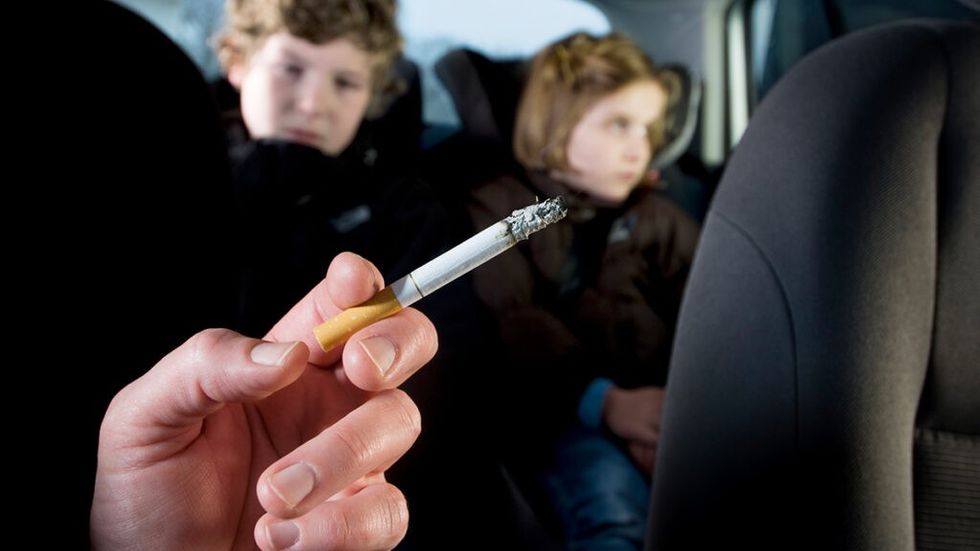Woman Thanks Ex-Boyfriend's Kid For Making Her Feel Loved
Jen and her brother, Todd, were just 10 and 12 years old when their father began dating Shirley Norton. It was 1986. Their love affair was short-lived, lasting only a year.
And while it may have been brief, it left an impact that stayed with Shirley until she died.
Eighteen years later, Jen received a phone call out of the blue. It was from a bank manager, informing her that Shirley had bequeathed $50,000 each to her and her brother. But in addition to the inheritance, Shirley also left behind a note.
A Random Phone Call
@intoxicatedinsights69 Absolutely gut wrenching story! Step parents truly are angels on earth. Thank you guys for all that you do. Thank you to the endlessly fascinating Jen, for sharing this story with us. Full episode is out. Link in bio
Jen recently shared her story on her podcast, Intoxicated Insights. She also posted a clip of the episode on TikTok where it has gone viral, garnering more than 2 million views, 237,000 likes, and nearly 5,000 comments.
"I get a random phone call, this is like 2004, I have two small children," she explained to her co-host Sage.
"I get this random call from this woman from Utah who's a bank manager telling me that one of my dad's ex-girlfriends has passed away and left me and my brother $50,000 each."
Jen via TikTok
Initially, she thought she was being punked. It took the bank manager more than half an hour to finally convince Jen to provide her address.
She explained to Sage that the woman the bank manager called her about was "legit" one of her father's ex-girlfriends and they had only dated for one year before he broke up with her. But throughout that year, Shirley took care of Jen, buying her clothes, decorating her room, and being "absolutely sweet" to her.
Jen remembers the day Shirley left. She begged Shirley to take her with her.
"I might have seen her like maybe one or two more times but my dad got a new girlfriend and that was that."
Until 18 years later...
When Jen received the mail from the bank manager she discovered that in addition to the cash, Shirley had also left behind a two-page letter.
Jen has held onto that letter for 20 years.
The Letter From Her Father's Ex-Girlfriend

Jen's father's ex-girlfriend bequeathed $50,000 each to her and her brother. But in addition to the inheritance, she also left behind a note.
Youtube/intoxicatedinsights
Holding back tears, Jen read Shirley's letter aloud:
"Dear Todd and Jenny, I bet you both are asking yourself, who is she?" the letter began.
"I met you and your father in 1986 when you were about 10 and 12 years old. You each made a remarkable impact on me. You were both great kids. You were friendly and made me feel welcome in your lives."
To further jog the siblings' memories, Shirley wrote that at the time Jen wanted to be an actress and own a pink Ferrari. She talked about going to SeaWorld and spending Thanksgiving at Lake Tahoe. She reminisced about Knotts Berry Farm and eating dinner together on the Queen Mary.
"Todd, when we went to Circus Circus, you won a little stuffed lion for me," she added. "I still have it."
And when Jenny went to camp? She made Shirley a wall hanging out of a pie plate. "I still have it too," Shirley wrote.
"I never had any children of my own," she added. "But for that one year you made me feel like I was part of your family."
Cue the tears.
Shirley also shared in the letter that she'd had a kidney transplant in 1992. "This gift of life gave me many extra years so I could enjoy this amazing world."
She ended the letter, writing: "I had a good life. I would like to make your life a little easier and more secure. I pray you both have wonderful lives. P.S. Jenny, please don't buy a pink Ferrari," she joked before adding, "But if you really want one, buy it."
"We don't always know the impact we make on someone's life"
@intoxicatedinsights69 Replying to @AileneTH jen says thank you!
The money came at a time when Jen needed it most. In a follow-up TikTok she explains her son had just been diagnosed with autism.
"At the time my youngest son had just got diagnosed with autism and so the money was great because I paid for a lot of therapies for him."
She also shared that the family moved "and it did make my life a lot better." (Although she never did get that pink Ferrari).
But it's the letter that is truly priceless.
"The letter was the best. I've held onto it for all these years. I read it, it's sad, and it always touches my heart."
Jen via TikTok
It's also touched the hearts of more than 2 million TikTok viewers.
"Perfect example that we don’t always know the impact we make on someone’s life. She never forgot you," one commenter wrote.
"Omg I’m sobbing 😭.. that was so so sweet," wrote another. "All the memories she still had of the kids ❤️❤️"
A third said, "As an adult child of divorce who’s Dad had many girlfriends that I loved but never got to say goodbye to, this helped to heal me. Maybe they loved me as much as I loved them."
Sometimes people aren't meant to stay in our lives. They are there for a short time and then they're gone. But just because they are no longer with us, it doesn't mean they are forgotten.
Shirley never forgot the time she spent with Jenny and Todd, even two decades later. Her generous bequest and heartfelt letter were a testament to the deep impact their brief connection had on her life.
It's also a sweet reminder that blood isn't what binds a family together. It's love, no matter how briefly we get to share it.
*Featured image contains photo by cottonbro studio





































